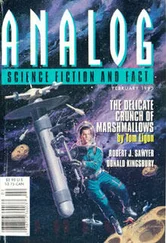Greg Krojac
THE SCHRÖDINGER ENIGMA
Schrödinger’s cat is a thought experiment about quantum physics. It was suggested by Erwin Schrödinger in 1935, stating that if you place a cat and something that could kill the cat (a radioactive atom) in a box and sealed it, you would not know if the cat was dead or alive until you opened the box, so that until the box was opened, the cat was (in a sense) in two simultaneous states – both “dead and alive”.
24 April
The crew of the F/V Alaskan Mermaid was looking forward to a well-earned rest from the arduous work of trawling in the icy waters of the Bering Sea. The Pollock A season was almost officially over and, like most of the other factory trawlers, the Alaskan Mermaid would normally have returned home before the season’s end, allowing the crew to take a welcome early break and spend quality time with their families. But destiny had played a cruel card and forced the freezer trawler to stay out at sea when it suffered a major failure in the factory freezer equipment, resulting in a partial release of the refrigerant into the engine room. A similar thing had happened to another trawler the previous season, but with far more calamitous consequences – the stricken trawler had developed a list due to an accumulation of seawater on the starboard side. The call to abandon ship had been made and less than half an hour later, the ship had downflooded and slipped beneath the waves, stern first.
Valuable lessons had been learned from that incident and the inquest’s recommendations rapidly put in place, allowing prompt action by the Alaskan Mermaid crew to minimize the damage, and avoid the same outcome. The result was only a few days loss of fishing while essential repairs were made.
Now the ship was up and running again and scores of seabirds swarmed above the cold waters, each one peering downward with beady eyes, ready to pounce upon any gift that the sea was forced to give up. Suddenly the murky water erupted and the birds became even more agitated. The water swelled around the centre of the disturbance as a net broached its surface, a heaving mass of fish pushing against the nylon netting from within as the catch gradually made its way towards the stern of the fishing boat. After a couple of minutes, the rest of the net surfaced, an industrial strength fishnet stocking, the foot section crammed with aquatic booty, as the heavy-duty winch hauled the trawl closer and closer to the waiting crewmen, A few birds were picking at the extremities of fish that poked out between the netting, but most of the gulls had dispersed and were taking advantage of other fish that had been brought to the surface by the turbulence.
This was a good catch, the trawl filled to bursting point with thousands of squirming rusty pink fish. As it got ever closer to the trawler, the net flattened out and some of the fish made a break for freedom. But there was nowhere safe to swim to, and the fleeing fugitives were easily picked off by the aerial scavengers. For those trapped within the trawler net, their fate was sealed and they would surely end up on somebody’s dinner table. As the sea surrendered its grip on the teeming treasure, the netting began to accelerate towards its destination.
The pulley creaked a little under the weight of the day’s haul, as the struggle to reel in the day’s catch began in earnest. The ship’s captain stood on the bridge, watching the catch as it glistened in the morning sun, pleased with what he was seeing. They would soon be able to head back to port, and see their families again; that’s what kept them all going. Trawling for Pollock was a hard life and everybody on board was eager for respite from the arduous work. Suddenly the trawler’s skipper spotted something unusual in the nets, something that had no business being there. He leaned into the microphone and bellowed an order which resounded around the ship.
“Stop the winch!”
The crew couldn’t see why the command had been given, but they knew that he must have a good reason. The winch stopped abruptly, complaining briefly at the unexpected interruption. The captain barked another order.
“Cut engines.”
The ship became silent, or at least as silent as is possible for a working factory ship. The deck crew, now with nothing to do for the moment, crowded at the stern of the ship, staring at the now stilled net, the fish within still thrashing about trying to escape. The captain ordered the ship’s engines to restart, and the vessel to edge forward as slowly as possible, so that the trawl net wouldn’t sink back underwater. He passed his binoculars to the Alaskan Mermaid’s first mate, who had been standing alongside him all the time.
“Take a look, Robert, and tell me what you see.”
Robert put the binoculars to his eyes and changed the focus so that he could see better what had caused the net retrieval to be paused.
“It looks like a satellite dish, Skip, but surely it’s too big for that. And what the hell would a satellite dish be doing out here in the middle of the Bering Sea?”
“Take a closer look, Robert.”
The first mate refocused the binoculars and took another look.
“No, it’s not a satellite dish; I think it may be an actual satellite.”
The captain had been mulling silently through his options while watching the object bob up and down in the water.
“Agreed. But if it is a satellite, we have no idea who it belongs to. It may be one of ours. It could be from anywhere. But we definitely can’t deal with it ourselves. As much as I’d love to claim it as salvage, I’ve a feeling the authorities will be very interested in what we’ve found. I wouldn’t be surprised if there’s a finder’s fee for something like this. I’ll get on the sat phone to the Coastguard. They’ll know what to do.”
Robert grinned.
“Let’s hope it’s not the satellite we need to make that call.”
The call was made and then the two of them descended the steps from the bridge to the ship’s deck. Robert called over two of the crewmen.
“Fancy a swim?”
The two men certainly did. Normally their task was to make underwater repairs or release a snagged trawl. It would be good to do something different. It wasn’t every day that a satellite got caught in a trawler’s nets, and they were excited at the idea of a close-up view of the day’s celebrity.
Five minutes later, kitted up in their scuba-diving gear, they plunged into the water and headed to the part of the net where the object was trapped. Each had with them a length of rope which they used to further constrain the object and prevent it from breaking free. Then they checked the area around the satellite and dived underwater to see what was happening beneath the netting. A few seconds later they resurfaced and gave a thumbs up to the captain, who looked visibly relieved. The satellite – and the windfall that hopefully it represented – wasn’t going anywhere.
“Robert, tell the divers to attach a buoy to it and then come back on board. We can’t afford to lose it.”
An hour or so later, the chud-chud-chud of helicopter blades could be heard in the distance. The sound got louder as the chopper continued to approach the ship until it was close enough to drop three divers into the water near the net. By now the entire crew, processing workers included, was at the stern watching the adventure unfold; this was much more entertaining than working. At least two dozen cell-phones were pointed at the scene, recording the event for both posterity and social media.
Sitara hadn’t been given a chance to prepare for this trip. No sooner had she received the phone call requesting her presence than a car had pulled up outside her aunt’s house in Anchorage, ready to whisk her away to a waiting helicopter at the nearby Joint Base Elmendorf-Richardson. She’d been enjoying her break from her work as a member of the Voyager Team at the Jet Propulsion Labs at Caltech, but the Deputy Administrator of NASA, had called her personally – so she could hardly refuse. She had grabbed a few clothes, stuffed them into a backpack, and called out to her aunt.
Читать дальше












